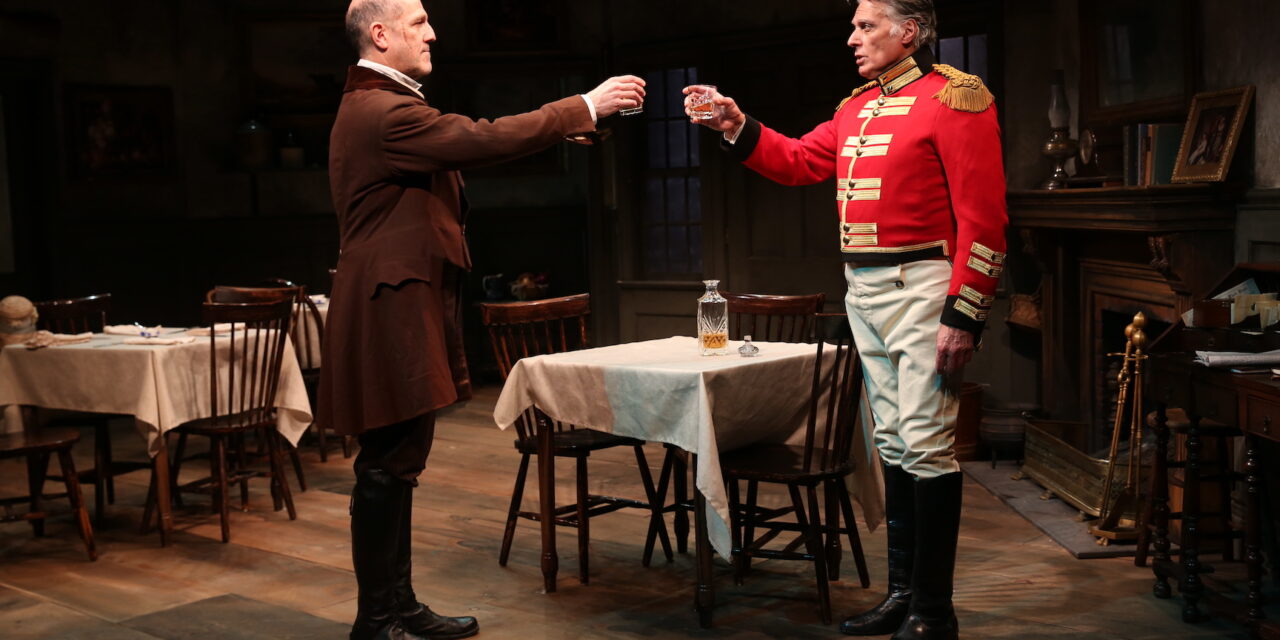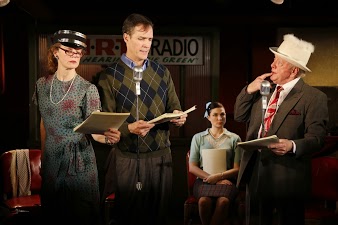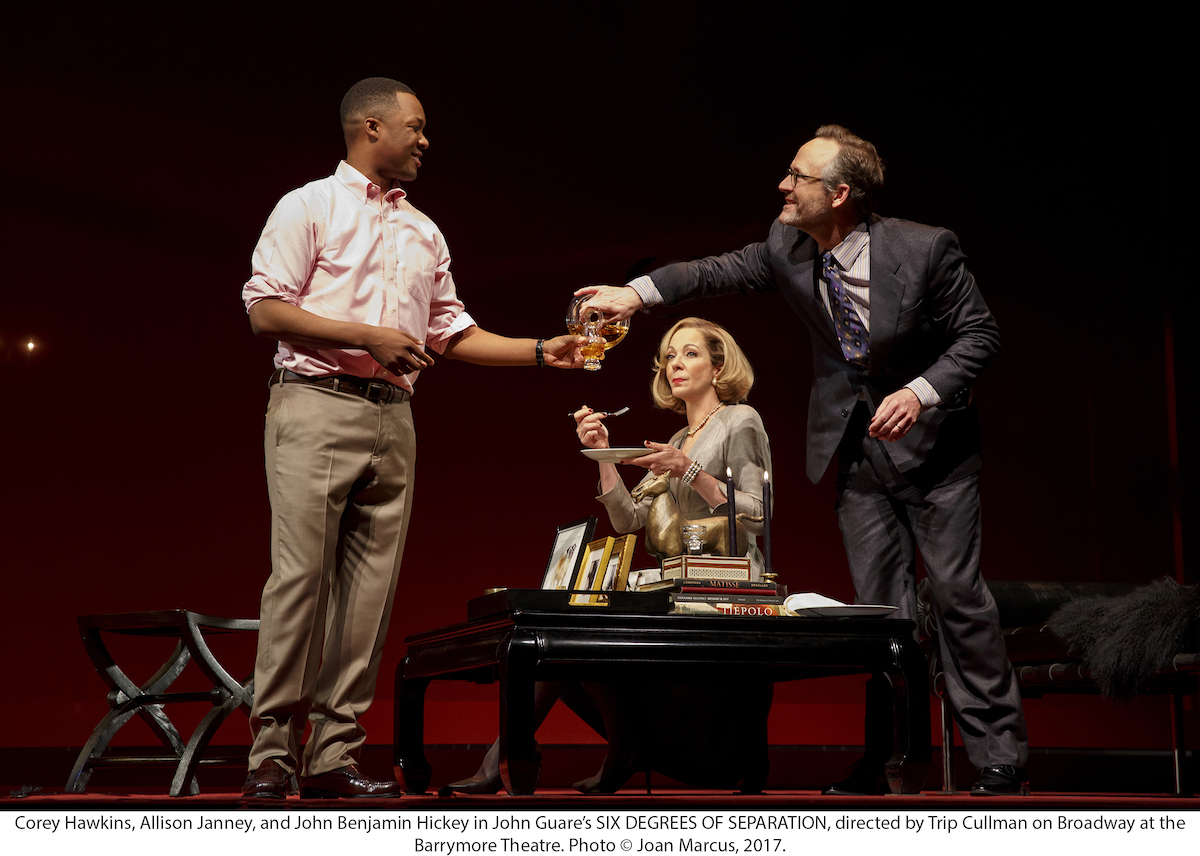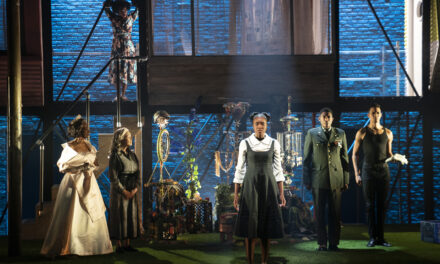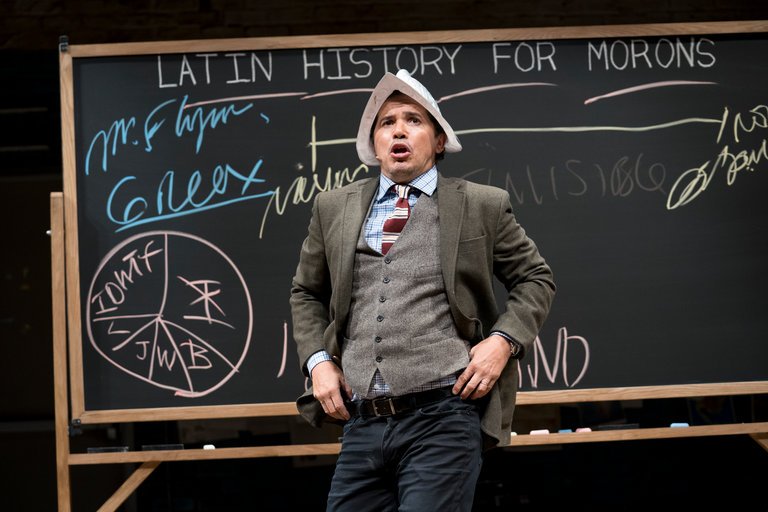By Bart Greenberg . . .
A Touch of the Poet is one of Eugene O’Neill’s problematic plays. Written in the 1940s, but not produced until 1958, after his death. It was planned to be the first of a nine-play cycle, but only the immediate sequel, More Stately Mansions, was partially completed by the playwright. The cycle was to be the story of an Irish-American family through United States history and while it was both ambitious and daunting, but got a strong launch with this beginning. In part a commentary on the clash of cultures between the newly arrived Irish and the old guard English of Boston and the class system of the “home country,” the work also returns to one of the artist’s favorite themes of those entrapped by their own self-justifying lies.
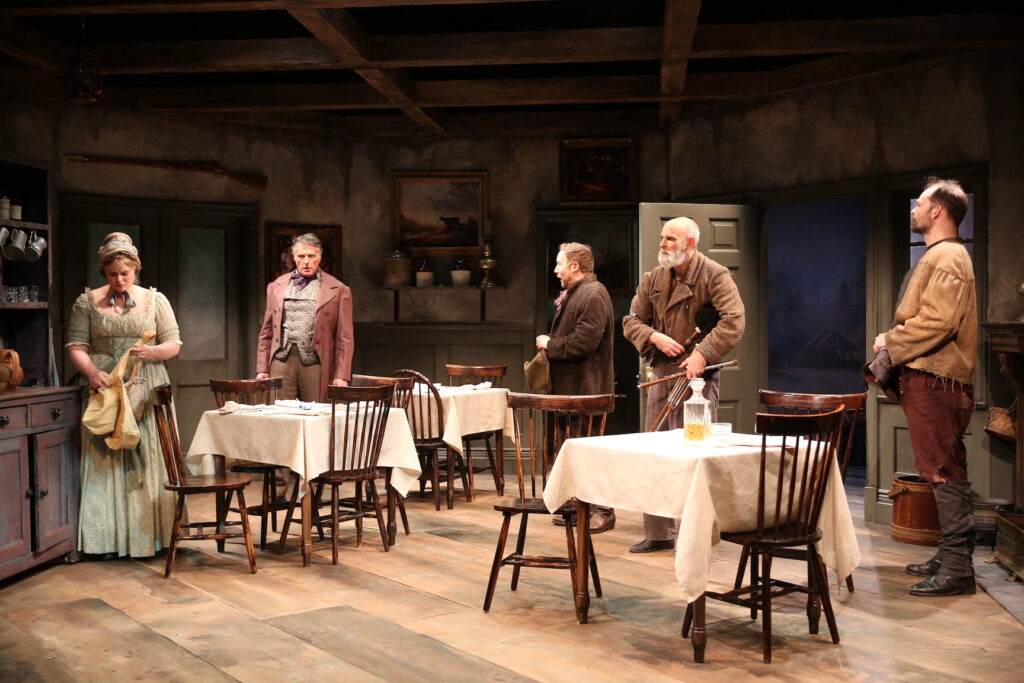
Another play in O’Neill’s favorite setting, a bar, this one is set in a lower class tavern (beautifully evoked with splendid detail by set designer Charlie Corcoran) owned and operated by Cornelius “Con” Melody (Robert Cuccioli), a drunk and a liar. His claims to come from Irish gentry seem suspect, as he alternately bullies and cajoles the wife (Kate Forbes) he was forced to marry, and his daughter, Sara (Belle Aykroyd), who is more like him than he cares to acknowledge. He has a similar relationship with a former army comrade (Andy Murray)—who he never fails to remind that he outranks him. There’s also an unseen young man, the scion of Boston Brahmans, who Sara is nursing back to health in the bedroom upstairs and hoping to woo into marriage.
This long Pandemic-delayed production from the Irish Repertory Theatre possesses a vigor and passion evoked by director Ciaran O’Reilly who finds energy in the constant movement on stage. There is a sense of violence just below the surface that keeps the audience in suspense of when and where it will explode. He succeeds in drawing out nuanced performances from most of his cast, suggesting there are even more complexities to the characters than we are privy to.
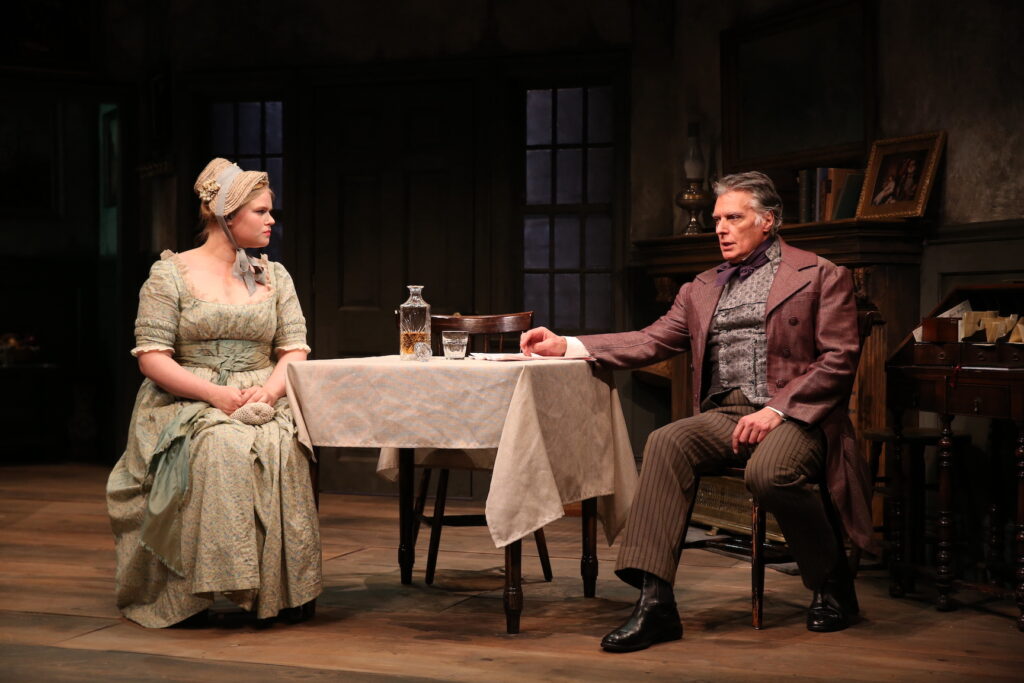
Leading the cast, Cuccioli continues to demonstrate that he is one of the finest actors performing on New York stages today. Following fine performances as Caesar and Sir George Crofts (Mrs. Warren’s Profession), his mercurial Melody is a detailed portrayal of a tragic figure at war with the world and with himself. He is desperate to constantly reassure himself that he is still the lord of the manor, the military hero, the great seducer of women. He jumps from one fantasy to another without hesitation and is a dizzying range of personalities that remain tied to the core of this broken man.
Kate Forbes, as his wife Nora, offers a lovely balance to Cuccioli’s tornado. It is a quiet performance of a woman who will seize on any glimpse of hope, any memory of happiness. There is a quiet strength in her performance; she may be a target of Con’s anger and frustration but is not his victim. It is not a “big” role in regards to a line count, but her balancing presence is vital to the chemistry of the play. She also shares a complicated relationship with her daughter, loving her, encouraging her in her dreams to rise in class, but cautious in not wanting her to be hurt. All of this Forbes communicates in small gestures, in looks, in just existing within the universe of the play.
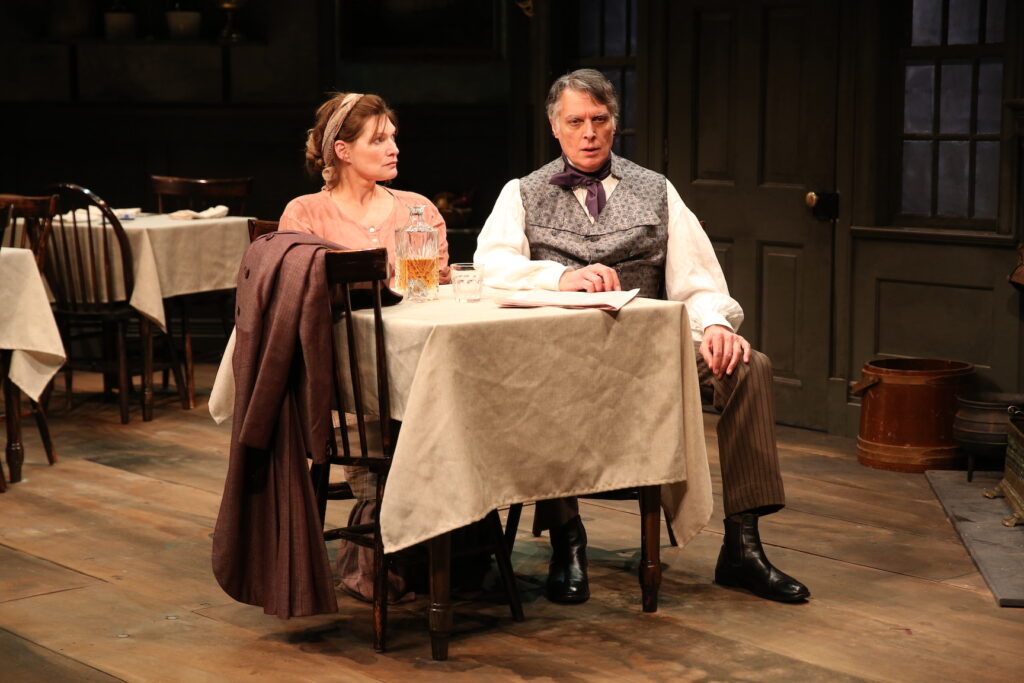
Belle Aykroyd, as daughter Sara, is, unfortunately, the weak link in the show. She gives a very surface performance, not capturing the inter-conflicts of this woman filled with self-doubts thanks to her father’s treatment. Nothing was blatantly wrong in her characterization; it was just dull, leaving a major hole in the dramatic thrust of the show. In smaller roles, Mary McCann made the most of her few scenes as the eccentric and troubled mother of the young man Sara has set her sights on, John C. Vennema is fine indeed as a pompous attorney, and Andy Murray provides great support to Cuccioli’s as his ever-faithful comrade in arms, reveling in his blind devotion to their shared past. James Russell makes the most of his scenes as a sympathetic bartender who may have unspoken feelings for Sara.
Overall, this is a fine production of a rarely revived O’Neill play and very worth seeing. If not totally successful, it certainly has more than one touch of poetry.
A Touch of the Poet. Through April 17 at the Irish Repertory Theatre (132 West 22nd Street, between Sixth and Seventh Avenues). www.irishrep.org
Photos: Carol Rosegg


